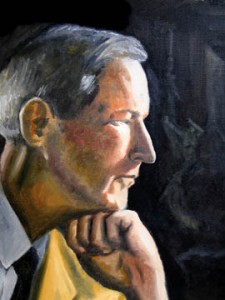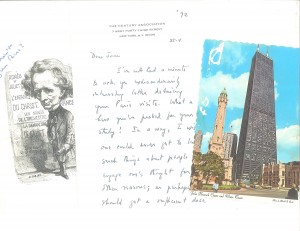
Back before Frankenstorm Sandy took over the air-waves, academia met its demise. Well, not academia as it is today–we are all still here, obviously!–but academia as it existed in the mind of Jacques Barzun, who died on October 25 at the age of 104.
Barzun was a “cultural historian,” but the title only hints at the many subjects he took on. One of his first books was Race: A Study in Modern Superstition, which examines the motivations for racism and why people invent reasons to define groups of “undesirables.” It couldn’t have been more timely when it was published in 1937. Some of his best known books are about academia itself: The American University and The House of Intellect look at the function and practice of the knowledge industry (although he would never have used jargon like “the knowledge industry”), especially in times of upheaval and change. (The American University was published at the height of the 1968 student protests at Columbia University, where Barzun was on the faculty.) Culture–the source and substance of university education–was a theme he returned to repeatedly, sometimes in microcosm, in works on art and music, and sometimes in very broad strokes. His last full-length study was From Dawn to Decadence: 500 Years of Western Cultural Life, published in 2000 when he was 93.
One of his own favorite topics was surely the French Romantic composer Hector Berlioz, whom Barzun studied as a collector, afficionado and scholar. It was Berlioz, indirectly, who sparked a decades-long correspondence between Barzun and his former student Joan Peyser. Peyser was a musicologist focused on the 20th century (she wrote a biography of Leonard Bernstein, for example) but the epistolary conversation she and Barzun carried on covered a range of common interests: music, the publishing industry, academic gossip, married life in the midst of second-wave feminism. Barzun served as a reader of Peyser’s books, and the letters where he explains his editorial comments also shed light on the intricacies of literary friendship.

Why do I know what Jacques Barzun and Joan Peyser wrote about in their letters? Because we are the fortunate stewards of their correspondence, which makes up the bulk of the Jacques Barzun Papers in Special Collections. It’s the sort of collection that shows just how much of intellectual life is actually situated in the off-hand remarks, the casual reports on books read and concerts heard, the frank accounts of one’s current work–and if you are a musicologist, a student of educational culture, or just a curious reader of 20th-century letters, it will reward your perusal.
